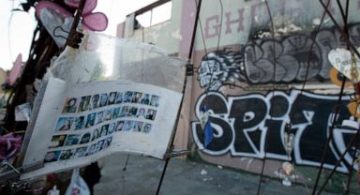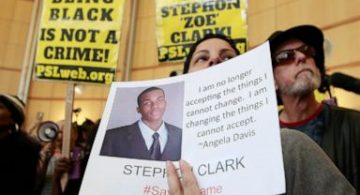
Even as top Pennsylvania officials assail the Catholic Church over its cover-up of clergy sexual abuse, a state agency is refusing to release a report on allegations of sexual abuse by a high-ranking state university administrator despite lingering questions about how the accusers’ complaints were handled.
In a case that bears some broad similarities to — and contains important differences with — the Pennsylvania church scandal that exploded in August, Pennsylvania’s higher education agency won’t agree to allow the public to see the 10-year-old report on former East Stroudsburg University Vice President Isaac Sanders. The report has taken on fresh significance in the wake of a new federal lawsuit by Sanders over his firing that could put Pennsylvania taxpayers on the hook for millions of dollars.
The office of Pennsylvania Attorney General Josh Shapiro — acting as the higher-ed agency’s lawyer — says the report on Sanders remains subject to an 8-year-old confidentiality agreement and can’t be released. But Sanders’ lawyer says he “could care less” if the document is disclosed, and the students who accused Sanders of sexual assault and harassment have long wanted the state’s evidence against him made public, only to be rebuffed by state officials.
The government’s position that it should remain out of public view stands in sharp contrast to Shapiro’s well-publicized effort to force the Catholic Church to be more transparent about child sexual abuse.
The first-term Democrat has been on a media blitz since he released a blockbuster grand jury report that found senior officials in the Catholic Church in Pennsylvania covered up widespread abuse by predator priests.
Shapiro blasted church leaders for “protecting their institution at all costs” and ridiculed clergy who fought to block the release of the grand jury report, declaring “they wanted to cover up the cover-up.” He’s now waging a legal battle against nearly two dozen priests who are fighting to keep their names blacked out of the public version of the 900-page document.
“Every name of a predator priest left redacted means the silencing of a victim’s voice,” Shapiro said last week.
In the Sanders case, though, the state has long refused to share what it knows with the public.
The former students at East Stroudsburg, a state-run university in the Pocono Mountains, claim Sanders used his high-powered job to offer them gifts, scholarships and campus jobs, then sexually harassed or assaulted them — including forced oral sex. Their lawyer portrayed him as a predator who targeted emotionally fragile black men from broken homes because he believed they’d be less likely to report the abuse. The state’s investigation into Sanders, which led to his 2008 ouster, found he “exercised exceedingly poor judgment toward” students and mishandled donor funds, according to his termination letter.
Sanders has never been charged with a crime and has always categorically denied sexually touching any of the men. A federal jury sided with the former university official in a 2014 lawsuit brought by the students. Sanders, who faced a similar accusation of sexual misconduct when he worked at Stillman College in Alabama in the 1990s, recently filed a wrongful termination suit against the state, alleging he was railroaded.
After Sanders sued, The Associated Press asked Shapiro’s office and the Pennsylvania State System of Higher Education to release the 2008 investigative report on him. Both agencies declined — the attorney general’s office acting on behalf of its client — citing a court order still in effect from the students’ lawsuit.
The secret document entered the federal court system after a half-dozen men sued Sanders and the university in 2009. The university turned it over to the plaintiffs, but the parties agreed in court that it would be sealed from public view. It has remained that way ever since, even though the case is now over.
After losing at trial, the students’ lawyer asked the attorney general’s office in 2016 to abandon the confidentiality agreement and release the report. “Failure to disclose,” wrote the attorney, Albert Murray Jr., is “tantamount to a cover-up … by the state.”
The government rejected the students’ request.
Murray declined to comment for this story.
Shapiro’s office would not say whether he favored the report’s release, given his high-profile assertions about the church cover-up. Shapiro, who took office in 2017, did not respond to an interview request.
“The Office of Attorney General has a legal and ethical duty to zealously represent its clients — here a state university. The report is not ours to release; it is the client’s report and remains under court seal,” said Joe Grace, Shapiro’s spokesman.
The university system, meanwhile, has relied on exceptions to Pennsylvania’s open records law as well as the confidentiality agreement to block requests for the document. Spokesman Kenn Marshall said the agency doesn’t “plan to seek any change to the status of the report.” He wouldn’t elaborate.
The state’s actions in the Sanders case and the clergy abuse cover-up differ in important aspects. University officials advised the students to talk to the local district attorney, while Catholic church leaders discouraged victims from reporting to law enforcement. Sanders was fired; abusive priests were simply moved to new parishes. The attorney general’s role in each case was different, too, leading a grand jury probe into church abuse while, in the Sanders case, representing East Stroudsburg’s interests in court.
But there are also broad similarities.
Just as church officials failed to report abusive clergy to law enforcement, the university system didn’t go to police or prosecutors with the results of its months-long probe. In fact, when law enforcement officials asked for the report years ago, the higher-ed agency refused, citing the confidentiality agreement.
Yet the system got the report from its outside law firm in 2008 — a full two years before it was sealed by a federal judge at the request of the parties in the civil suit.
Legal experts said the agency could have and should have turned it over.
“As a general proposition, I think they had a duty to disclose,” said former federal prosecutor Gordon Zubrod. “If they were required to turn it over to a civilian party in a lawsuit, how can they say, ‘We’re not required to turn it over to law enforcement?’ That’s just crazy talk.”
It remains unclear the extent to which law enforcement investigated the students’ allegations or the claims of financial malfeasance. The local district attorney said he turned the investigation over to federal prosecutors years ago. The U.S. Attorney’s Office did not immediately respond to a request for information about Sanders. The state attorney general’s office has said it couldn’t do its own criminal investigation because its civil division was already representing East Stroudsburg in the students’ lawsuit.
Nearly all of the allegations made by the students are too old to prosecute, though one student’s 2007 sex assault claim against Sanders might conceivably fall within the statute of limitations. But Zubrod said a prosecutor would probably be reluctant to take on such a case at this point, given the students lost their lawsuit against Sanders.





